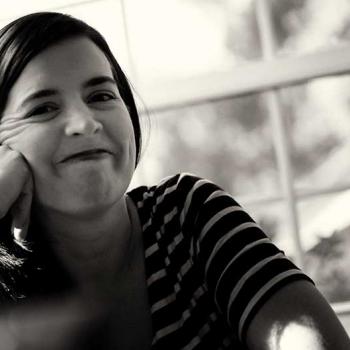By David Moore
Today, a story of big change—and anecdotal evidence that empathy is required to drive change in a manner consistent with the Kingdom of God.
First, the story.
Palm oil is used as cooking oil, a non-trans fat food additive in processed foods, and an ingredient in biodiesel. Even better, palm oil is renewable. However, responsibly managing palm tree farms is more complicated and expensive than simply clear-cutting Southeast Asian forest (which causes all sorts of environmental issues you can read about in this 2010 article from The Economist).
This long-standing environmental issue finally has some light at the end of the tunnel (explained here in “48 Hours That Changed The Future Of The Rainforests” by Grist.org’s Nathanael Johnson via Vox.com).
From writer Johnson:
This is a story about how change happens. It happens for big reasons: economic shifts, political winds, technological revolutions. But it also happens for small reasons: individual people making very personal choices.
In a very well-researched hypothesis, I’m going to call this the “change ecosystem.” In this ecosystem, change is very hard for three groups:
▪ Those that need a change to be made (“Needers”)
▪ Those that need to lead the change (“Leaders”)
▪ Those that have to make the change (“Changers”)
As the Johnson’s story plays out, these groups all experience the stress and discomfort of change at different times. On the front end, the Needers experience the stress and discomfort long before change officially begins. On the back end, the Changers experience the stress and discomfort long after their change has officially been forced and/or accepted.
Here’s Johnson again on the Needers (nearby residents adversely affected) and the Changers (palm oil industry decision makers):
Pushing for environmental responsibility is tricky business because it requires, first, dramatic confrontation, and then cooperation. Sometimes greens get stuck in the first mode, hung up on the primal desire to crush their enemies. But conflict alone spawns chaos: Smash the established palm-oil industry, and thousands of small farmers will turn to logging, or soy, or some new crop. And conflict alone is too slow.
Yet while the Leaders experience stress and discomfort for the shortest amount of time—that is, while they are conducting the change—they might feel it most intensely of all the three groups.

Johnson’s story centers around the Leaders (NGO activist Glenn Hurowitz and palm oil industry juggernaut Wilmar CEO Kuok Khoon Hong). As the world’s leading producer of palm oil, Kuok is able to fix the problem of clear-cutting palm forests in a complicated dance of texts, emails and meetings—but simple cartoon is the snowflake that starts the avalanche:
The point of the cartoon was not that Kuok or Goon were lonely tycoons, but that everyone had this angel in their hearts: the leaders of the recalcitrant companies, the NGO campaigners, the small palm-oil farmers, the people who ate the stuff. The Wilmar executives received it as recognition of common humanity.
[Note: I have tried to find this cartoon, but all I’ve found is the cartoon’s captions in poem form. In any case, what the cartoon said is not as important as the empathy it produced.]
Because of a bit of empathy, it’s a Hollywood ending. Everyone ends up signing the deal and it’s a big win for the environment and starts another round of change in other industries that you should read about in Johnson’s article.With the palm oil industry or any other organizational change, the onus is on all of us to think of each group of people in the change ecosystem:
- Those that need change have been suffering for a while.
- Those that lead change suffer now, for the shortest time, but maybe most intensely.
- Those that are adversely affected by change suffer for a while after.
Empathy for all of those involved might seem crazy, unwise or even impossible—especially if empathy is considered to be helpful only if completely genuine. Yet how many times have we put on a brave face when we wanted to cry, or smiled when we wanted to glare, and found it made a positive difference?
Change is hard—for everybody. It seems relevant to point out that, in the spirit of “considering others as better than yourself,” that, in times of change, empathy from and for all sides can make a significant difference.
David Moore is Continuing Education Manager for the Lowell W. Berry Center for Lifelong Learning at Fuller Theological Seminary in Pasadena, California. He received his MA in Theology and the Arts from Fuller in 2009. Prior to coming to Fuller, David worked in development and alumni relations for the Texas Tech Wesley Foundation after graduating with a BA in Advertising from Texas Tech University. David lives in Pasadena with his wife, Leah Beth, and two sons, Joel and Silas.
















